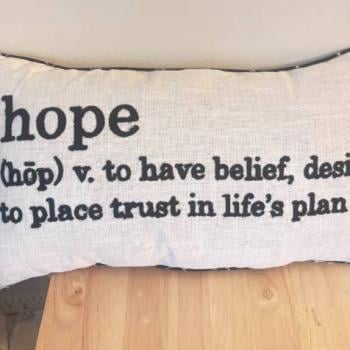An oft overlooked point of reference for many Christians is the fact that Jesus, who is at the heart of our faith was more than likely a brown skinned, middle Eastern, Palestinian Jewish male who lived in an occupied country by people who were probably lighter in skin color than him. Ironically, I have spent a lot of time in churches that have never depicted Jesus this way. My grandmother even had the classic blue eyed, ivory white skinned and blond-haired Jesus hanging in her home coming up.
This week on civil discourse, I want to explore what we talk about when we talk about race. I will also explore a couple of spiritual practices that can guide our discussions.
What Defines Race
“Race is a human classification system that is socially constructed to distinguish between groups of people who share phenotypical characteristics. Since race is socially constructed, dominant groups in society have shaped and informed racial categories in order to maintain systems of power—thereby also producing racial inequality.”
When we racially categorize someone or a people, we generally use simplistic and generalized language or typologies to fit these people in boxes. “Racism is a byproduct of racial categorization that focuses on the hierarchical arrangement of various racial groups. Racism is an oppressive force that creates and reproduces a complex system social inequality.”
Often, especially in system theory, scapegoating is a means to “other” a person or group of persons. Using a Hegelian dialectic, a person or group of people who may have real or perceived power can alienate this group of people causing economic hardships, lost educational and employment opportunities and reduced access to health care, among other hardships.
Considering Civil Discourse on Race
Dwight Smith suggests that recent events have “shown that race is a topic that has been long overdue.” Recently, I posted a response to a meme about being criticized for being a non-believer. A response said to “turn the other cheek”. I responded back that complacency has gotten us into the boat we are in with our country.
Too much of our Christian rhetoric is about individual salvation and what we can do to save ourselves from a fiery eternal damnation. This overemphasis on individual salvation for me as a contemplative mark a significant lack of spiritual maturity and it focuses entirely on the self and a sustaining of egotism. A true mystical and contemplative spiritual orientation has one not see what their faith can do for them, but rather what purpose they play in the continual growth of the kindom of God.
I will forever hold onto the idea that the work we do as Christians must reflect the religion of Jesus and the philosophy that he created and then was sustained for four hundred years after his death. We must exist as a people who defend the poor, widow and orphan, much like our call in the Acts 2 church.
When we talk about race and the injustice that is perpetuated on those we other, “When it comes to tackling the issue of racial equity, we need to be cognizant and informed of the fundamental issues related to it. Creating purposeful dialogue on race helps to be better equipped in fighting injustices. Systematic change is necessary in creating the equality that marginalized communities deserve, and educated conversations can be the first steps to making that change.”
Dwight Smith challenges us to “deconstruct implicit biases, preconceived notions about race, and working to educate yourself on relevant matters are steps that you can take towards being an active advocate against racial injustice.” Smith asks us to consider four “R’s” when it comes to having a civil discourse on race:
- Respect, Reflect, and Resign
- Research and Relearn
- Reset and Reboot
- Recognize Bias and Privilege
I often reflect on Merton’s fourth and Walnut experience, realizing that at the end of the day, there is no separateness in us. Race is a social construct that unfortunately, I am forced to participate in despite my protests. My sex, my ethnicity and my socioeconomic status are other social constructs assigned to me. I can counter some of this by being aware of my biases, seeing each person as a potential seat of Christ and the presence of the divine, and understanding that everyone has an experience with God that may not look like my own cultivates a humility that creates an open heart. When we cultivate this attitude with the world around us, we no longer focus soley on individual salvation, rather we begin to blur the lines of separateness and see ourselves as part of the larger kingdom God intended.
Finally, when talking aobut race, Adrian Jacques Ambrose offers that “racism continues to be a difficult topic for most people, and the contemporary rhetoric seems to be increasingly divisive—it’s “us” vs. “them.” More than ever, people on both sides seem to use epithets like “brainwashed” and “anti-American” to mark those whose beliefs oppose their own. In addition, it can feel particularly dumbfounding to discover that someone in our families or friend group is a “them”—whatever characteristics we ascribe to “them”-ness.
He quotes Dr. King who offered “Darkness cannot drive out darkness; only light can do that. Hate cannot drive out hate; only love can do that.” For our loved ones who may be a “them,” how do we have these difficult conversations with light and love?”
The Spiritual Practice of Grace and Openness
We can begin our difficult conversions by considering the spiritual practices of openness and grace.
Openness invites us to approach conversations with a mindset of curiosity rather than judgment. It involves truly listening to others, valuing their perspectives, and being willing to learn from them. Openness encourages us to embrace our differences as opportunities for growth rather than obstacles. When we engage in dialogue with an open heart, we break down barriers and create space for understanding and connection.
Grace, on the other hand, is about extending kindness and compassion, even in disagreement It requires us to uphold the dignity of ourselves and others through our actions and words. Being gracious means acknowledging our shared humanity, offering forgiveness, and seeking reconciliation. In practice, this means we resist the urge to demonize those with opposing views. Instead, we honor their right to participate in the conversation and recognize the value they might bring to the table.
Together, we set a table of hospitality where opinions are shared, and bonds are strengthened, and we can grow in oneness with our Christ nature.













